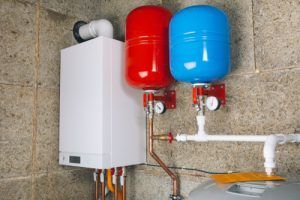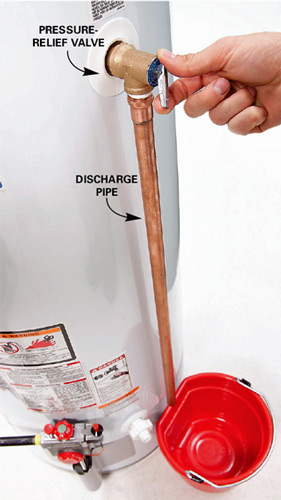Managing the Primary Water Heater Urgencies
Managing the Primary Water Heater Urgencies
Blog Article
Were you searching for critical info concerning Common Hot Water Heater Problems?

A hot water heater is among one of the most vital fundamental appliances that can be located in a house. With hot water heater, you don't require to undergo the stress and anxiety of home heating water manually every single time there is a need to wash, wash, or the dishes. There is always an opportunity that your water heating system would certainly act up as with the majority of mechanical devices.
It is very important to note any type of little breakdown and also tackle it promptly before points get out of hand. Many times, your water heater starts to malfunction when there is an accumulation of debris as a result of continuous usage. As a precaution, regular flushing of your water heater is advised to stop debris buildup as well as stop practical failure.
Usual water heater emergency situations and exactly how to deal with them
Dripping water heater tank.
A dripping tank could be an indication of deterioration. It could trigger damages to the floor, wall surface and also electrical tools around it. You might even be at danger of having your apartment flooded. In this scenario, you should switch off your hot water heater, enable it to cool down, and very carefully try to find the resource of the problem. Sometimes, all you require to do is to tighten a couple of screws or pipe connections in cases of minor leaks. If this doesn't function and the leakage persists, you might require to employ the solutions of a service technician for a suitable replacement.
Varying water temperature level.
Your water heater might begin producing water of various temperature levels usually ice chilly or scalding hot. In this scenario, the first thing you do is to make certain that the temperature level is set to the wanted level. If after doing this, the water temperature level keeps transforming throughout showers or other tasks, you could have a malfunctioning thermostat. There might be a demand to change either the thermostat or the home heating system of your water heater.
Inadequate hot water
It may be that the water heating unit can't sustain the hot water demand for your home. You might upgrade your water heating system to one with a larger capacity.
Tarnished or stinky water
When this occurs, you require to recognize if the concern is from the water or the storage tank source. You are particular that it is your water heater that is defective if there is no amusing odor when you run cool water. The stinky water can be caused by corrosion or the build-up of microorganisms or debris in the water heater container. When you see this, you can try flushing out your storage tank or replacing the anode if the trouble continues. The function of the anode is to clean germs from your container. Given that the anode pole substitute requires an extensive expertise of your water heating unit, you will certainly require the assistance of an expert.
Conclusion
Some house owners overlook little caution and also minor faults in their hot water heater unit. This only leads to further damages as well as a possible full break down of your device. You must deal with your water heater mistakes as soon as they come near avoid even more expenditures and unneeded emergency problems.
With water heating systems, you do not require to go through the anxiety of heating water by hand every time there is a need to take a bath, do the washing, or the recipes. Your water heating unit could begin producing water of various temperature levels normally ice chilly or scalding hot. It may be that the water heating unit can not sustain the hot water demand for your house. If there is no amusing smell when you run chilly water, then you are specific that it is your water heating system that is faulty. The stinky water can be caused by corrosion or the build-up of microorganisms or debris in the water heater container.
Common Water Heater Issues and What You Should Do
What Type of Water Heater Do You Have?
Before we begin it’s first important that you identify the type of water heater you have on your property. There are two main types of water heaters out there: conventional and high efficiency.
Both of these types of products typically use either gas or electricity to heat power. There are also solar water heaters that use a thermal collector on the roof or yard to heat the water.
While these models are not as common, they can cut heating costs in half. In this article, we will focus on conventional and high efficiency.
How Do My Electric and Gas Water Heater Work?
Though they look similar, electric and gas water heaters work very differently. It’s important to know their basic function because often problems can be specific to the heating source.
In the electric model, a thermostat on the side of the machine detects the temperature of the water in the tank. When the temperature needs to rise electricity flows to a heating element suspended in the water.
Gas models also use a thermostat device — typically with a mercury sensor at the tip and an additional sensor called a thermocouple. The thermocouple detects whether the pilot light is on and controls the flow of gas.
When the thermostat drops below the appropriate level gas is released which becomes ignited by the pilot light. The flame heats the bottom of the water tank which causes hot water to rise and cold water to drop.
This natural circulation continues until the water reaches the desired temperature. Then, the thermostat triggers the gas control valve to shut off the flow of gas.
What Are the Most Common Issues and How Do You Fix Them?
https://happyhiller.com/blog/common-water-heater-issues-and-what-you-should-do/

As a passionate reader on Warning Signs You Need Water Heater Repairs, I assumed sharing that topic was important. Enjoyed reading our review? Please share it. Let others find it. Many thanks for your time spent reading it.
Get the best, call! Report this page